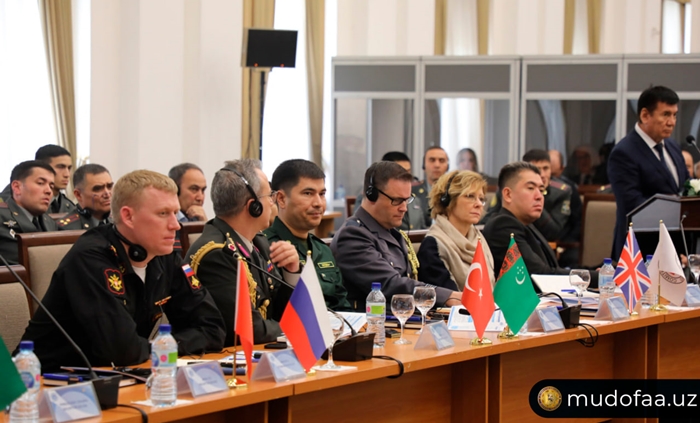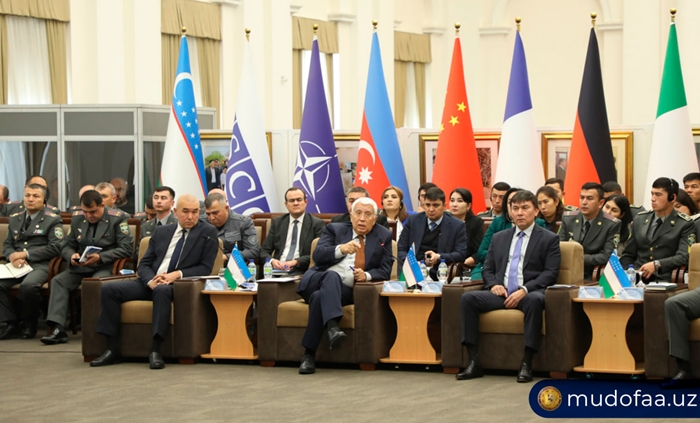The Academy of the Armed Forces of Uzbekistan in Tashkent hosted the V International scientific and theoretical conference on “The main trends in ensuring regional security in the context of globalization,” as reported by the Ministry of Defense of Uzbekistan.
The conference, organized in cooperation with the Organization for Security and Co-operation in Europe (OSCE), brought together military attaches accredited in Uzbekistan, representatives of scientific research and higher military educational institutions of Uzbekistan, Azerbaijan, Turkiye, Belarus, Germany, India, Italy, Kazakhstan, China, South Korea, the Kyrgyz Republic, Pakistan, Russia, Tajikistan and Turkmenistan, as well as delegates from the United Nations, the Organization of Turkic States, the OSCE, the International Committee of the Red Cross and the Red Crescent, leading strategic research centers, the SCO Regional Anti-Terrorist Structure, and the secretariat of the Council of Defense Ministers of the CIS member states.
In his address, Major General Shukhrat Kholmukhamedov, Chief of the General Staff of the Armed Forces of Uzbekistan, underscored Uzbekistan’s unwavering commitment to the principle of “indivisibility of security.” He highlighted the country’s active foreign policy efforts to safeguard the sovereignty of nations, mitigate global and regional security threats, prevent military conflicts, and foster comprehensive cooperation in accordance with international humanitarian law and engagement action rules.
Expressing his confidence in the conference’s potential to foster mutually agreed approaches to bolster regional security and stability, Kholmukhamedov set the stage for a series of thought-provoking lectures by academic and expert-analytical circles. These presentations addressed critical issues surrounding regional security, exploring new areas and developing effective strategies to tackle pressing challenges.
The conference took up the following themes:
• New trends and prospects for regional cooperation in security and joint development
• The role of Armed Forces in preventing regional military conflicts and post-conflict regulation, considering technological advancements in the 21st century
• Formulating and implementing unified approaches to combat diverse threats to regional security and state borders
• Environmental challenges and their impact on regional security
• Artificial intelligence and neural network development and their implications for regional security
The conference proceedings will include lectures and abstracts prepared by participants, encompassing topics such as enhancing regional cooperation mechanisms on security matters, forging partnerships to combat risks and threats, and addressing related issues. ///nCa, 1 December 2023

